Bilberry is a popular fruit to snack on in Europe. The bilberry plant, a low-growing shrub with flowers seen in red, blue and purple colors, is native to Northern Europe and also grows in North America and northern Asia.
Bilberry is also known as Vaccinium myrtillus L., which is one of the richest natural sources of anthocyanins. Anthocyanins are polyphenolic components that give it dark blue colour and super high-antioxidant content. The powerful anthocyanins are believed to be the key bioactives responsible for the numerous health benefits of bilberry.
Top Ten Benefits of Bilberry
- Powerful Antioxidant
The main active components of bilberries are their anthocyanins, powerful antioxidants. These plant pigments also give bilberries their dark blue colour.
Bilberries are among the richest anthocyanin sources, supplying 300-700 mg per 100 g berries. The main ones are:
- Cyanidin
- Delphinidin
- Malvidin
- Peonidin
- Petunidin
Other less abundant phenolic compounds in the berries include quercetin, myricetin, catechins, resveratrol, and caffeic and coumaric acid. Leaves are much lower in anthocyanins but contain higher amounts of these phenolic compounds.
- Nutritional Boost
100 g of bilberries will give you:
- Calories: 42
- Carbs: 11.5 g (8.7 g sugars and 2.8 g fiber)
- Proteins: 0.7 g
- Fats: 0.5 g
- Vitamin C: 44 mg (48% of recommended daily intake)
- Vitamin E: 2.1 mg (14% of recommended daily intake)
- Manganese: 3.3 mg (66% of recommended daily intake)
- Potassium: 103 mg (3% of recommended daily intake)
This means that bilberries combine a low-calorie count with a high vitamin and mineral content. They are especially rich in vitamin C and manganese.
- Improve Eyes Health
More jobs require people to stare at computer screens all day, while phone use often makes the remaining time. This is associated with two conditions: eyestrain and dry eye. In both, reduced tear production impairs vision. Bilberry increases tear production.
Bilberry has been suggested as a treatment for retinopathy, which is damage to the retina. It has also exhibited protective effects against and macular degeneration, glaucoma and cataracts, particularly when used with lutein.
- Inflammation
Bilberries (250-500 g/day) and their juice (330 mL/day) reduced blood inflammation markers (such as IL-1b, IL-6, VEGF, and CRP) in 3 clinical trials on over 100 people. They helped those with gum disease, metabolic syndrome, and high risk of heart disease. Bilberry seems to be a safe remedy for a range of chronic inflammatory diseases.
- Effective for Treating Diarrhea
Bilberry has been used in European medicine to treat diarrhea for many years. The fruit contains tannins, substances that act as both an anti-inflammatory and an astringent that helps with constricting and tightening tissues. By reducing intestinal inflammation, it is believed to help with reducing the symptoms of diarrhea.
- Improve Blood Circulation
In Europe, health care professionals use bilberry extracts to treat circulation problems, also known as chronic venous insufficiency (CVI). Research suggests that this condition, which occurs when valves in veins in the legs that carry blood to the heart are damaged, may be improved by taking bilberry extract.
- Improves Bad Cholesterol
The amazing anthocyanosides found in bilberries may strengthen blood vessels and prevent the oxidation of LDL (“bad”) cholesterol, a major risk factor for atherosclerosis that is the plaque that blocks blood vessels leading to heart attack and stroke.
- May Improve Blood Sugar Level
Bilberry leaves have been used to control blood sugar levels in people with diabetes traditionally. Research shows that most berries help reduce the body’s glucose response after eating a high-sugar meal and studies suggest it may be effective for managing blood sugar levels.
Similarly, a cup of bilberry fruits or 1-2 glasses of the juice reduced sugar, insulin, and GLP-1 spikes after eating a carbohydrate-rich meal in 6 trials on almost 100 healthy people .
Although the evidence is limited, bilberries seem a good natural strategy to help lower blood sugar levels based. Further research should determine how they may be used therapeutically.
- Lowers the Risks of Alzheimer’s Disease
Evidence suggests that fruit and vegetable juices containing various phenolic compounds can reduce the risk of Alzheimer’s disease. In some cases, symptoms of Alzheimer’s was significantly decreased upon treatment with myricetin, quercetin or anthocyanin-rich extracts found in bilberry and showed that behavioral abnormalities may have been alleviated.
- Helps Prevent Cancer
A commercial anthocyanin-rich extract from bilberry was shown to inhibit the growth of colon cancer cells. In a DNA study, an anti-inflammatory profile was seen in macrophages treated with a bilberry extract, and since inflammation is an important risk factor for cancer, it may be very useful in its prevention.
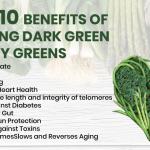


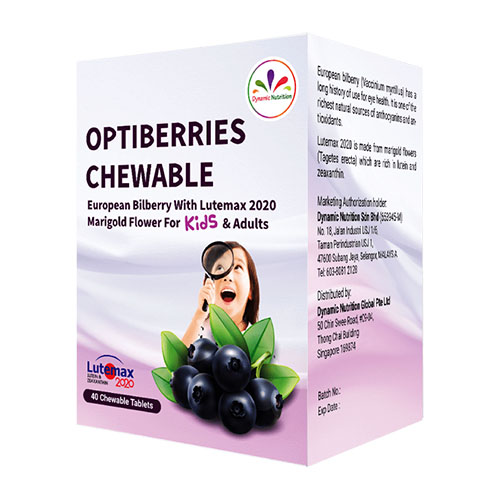
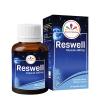



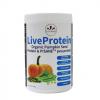

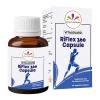

Facebook Comments